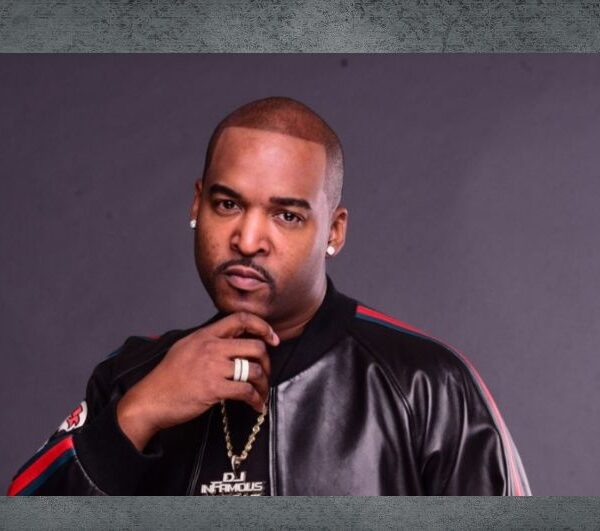
|
Getting your Trinity Audio player ready...
|
By Alric Lindsay
According to a Grand Court judgment dated August 5, 2024, handed down by the Honourable Justice Jalil Asif KC, the Director of Public Prosecutions (DPP) was ordered to disclose advice given to the DPP by external legal counsel in February 2022, which the DPP allegedly used to decide to not lay criminal charges against Dr John Lee and others in connection with the unlawful search conducted at Cayman Islands Urgent Care Ltd., trading as Doctors Express.
Background
For members of the public who are unaware of the background of the matters related to the unlawful search at Doctors Express, the judgment explained that:
- Doctors Express held certificates and licences which allowed them lawfully to import, possess and prescribe medical cannabinoids, in accordance with the provisions of s.2A of the Misuse of Drugs Act (2017 Revision), amongst other sections of the Act. There was initially no restriction on the prescription of medical cannabinoids for administration by vaporisation (or any other method) in the Cayman Islands.
- On 10 September 2019, Doctors Express caused a text message to be sent to users of Digicel telephones advertising that vaporisable medical cannabinoids were available.
- The Customs and Border Control Department were clearly concerned about this advertisement and decided to conduct an enquiry. On 11 September 2019, customs officers met with the registrar of the Health Practice Commission (HPC). On 13 September 2019, the registrar sent an email to the CMO stating that the HPC Board considered that the CMO should send a cease notice in respect of vaporising medical cannabinoids to all medical practitioners and attached a draft notice. The registrar also stated that Customs and Border Control had asked the HPC Board to request that the products be detained until a decision was reached.
- The CMO prepared a cease notice on 14 September 2019, largely reflecting the draft sent by the registrar of the HPC. The cease notice was addressed to all registered healthcare practitioners. It stated that an investigation had been opened into the use of cannabinoids in medicine at the CMO’s request;
- The notice stated that, pursuant to the CMO’s powers under s.14 of the Misuse of Drugs Act, all healthcare practitioners were to cease and desist from issuing, processing, dispensing or selling any cannabinoid which would be used by vaporisation until further notice.
- The cease notice was not sent to Doctors Express on 14 September 2019, even though they operated the only medical facility prescribing and dispensing vaporisable medical cannabinoids in the Cayman Islands.
- On 16 September 2019, The RCIPS arranged to attend Doctors Express’ premises for an explanatory discussion, but the RCIPS then cancelled the meeting.
- On 17 September 2019, Ms Holly Schneider, a customs officer, applied to Ms O’Neil, in her capacity as a Justice of the Peace, for a search warrant under the Misuse of Drugs Act on the basis that there were reasonable grounds to suspect an offence of possession of a controlled substance, namely cannabinoids to be used by vaporisation. Ms O’Neil was apparently not informed that Doctors Express had a licence to import, possess and prescribe medical cannabinoids, the advertisement pre-dated the cease notice, RCIPS had requested and then cancelled the meeting with the Applicants arranged for 16 September 2019 and there was an alternative means of lawful entry under s.6 of the Misuse of Drugs Act.
- Ms Schneider’s reasonable cause for suspicion was said to be based on the Applicants’ failure to retract the advertisement. She alleged that entry to the premises would not be granted without a search warrant.
- Ms O’Neil granted the search warrant on 17 September 2019.
- Later, on 17 September 2019, officers from Customs and Border Control and RCIPS raided Doctors Express’ medical facility and offices, claiming to be executing the search warrant. During the search, a representative of Doctors Express explained that they were fully licensed by the HPC and other relevant bodies and that the cannabinoids had been imported under the authority of certificates issued by the CMO. The officer in charge replied that the CMO had rescinded such permission.
- Sometime after the search began, Doctors Express were sent the cease notice dated 14 September 2019, with an apology that it had not been sent to them previously.
- Doctors Express pursued a claim for judicial review. They sought a declaration that the cease notice was unlawful; an order quashing the search warrant; a declaration that the entry of customs and police officers into the applicants’ premises and the search conducted at the premises were unlawful;
- Following a trial, McMillan J delivered a comprehensive judgment, comprising 392 paragraphs over 164 pages, in which he held that:
- As a matter of law, the CMO did not have power to issue the cease notice.
- Even if the CMO was justified in issuing the cease notice, Doctors Express had a legitimate expectation that they would be afforded a fair hearing to be informed of and contest the relevant facts. There had been a clear departure from the principles of natural justice.
- The cease notice was issued for a reason other than the reason specifically identified, viz. serious health risks associated with the use of vaporisable medical cannabis. It was in fact issued in response to an initiative undertaken by HM Customs and supported by the HPC.
- The CMO knew that there was no health risk to justify issuing the cease notice in relation to Doctors Express’ products.
- There was no reason to issue the cease notice other than to target Doctors Express, given that no other medical dispensaries were dispensing cannabinoid products.
- The decision to issue the cease notice was irrational and unfair. Whatever the concerns of HM Customs and HPC arising from the Doctors Express advertisement on Digicel, they did not justify the CMO’s action.
- There was no basis to issue the cease notice. If there were, then it would have had to have been served personally, which it was not, which was fatal to its validity.
- There was a breach of natural justice in failing to give Doctors Express the opportunity to argue for the restoration of their suspended licence.
- The CMO had acted for an improper purpose in issuing the cease notice.
- The CMO had no reasonable basis to issue the cease notice, which (a) was functionally targeted against Doctors Express; and (b) was issued on a basis which the CMO himself did not believe.
- The cease notice was unlawful and was set aside.
- Following the conclusion of the Applicants’ first judicial review claim, and in light of the terms of the judgment of McMillan J, Doctors Express wrote on 10 February 2021 inviting the DPP to consider authorising criminal charges against the individuals involved. The DPP replied on 15 February 2021, indicating that any decision would be made after careful consideration of the judgment and “a significant amount of further information”.
- On 28 February 2022 Doctors Express were informed that the DPP was not intending to commence a prosecution against any of the persons involved. Doctors Express sought an explanation from the DPP but, apart from stating that the potential prosecutions had failed the evidential test, the DPP refused to provide any further information at that time. Doctors Express sent a short pre-action protocol letter on 14 April 2022, requesting a response by 28 April 2022.
- Not having received a response, Doctors Express commenced the current judicial review proceedings by an application for leave filed on 4 May 2022 challenging the decision of the DPP not to lay charges.
- Coincidentally, on 4 May 2022, Ms Salako, as Assistant DPP, wrote to Doctors Express to provide some limited further information. She informed Doctors Express that in January 2022 the Acting DPP (at that time) had decided that it would be prudent to obtain leading counsel’s advice on the decision whether to lay charges. Ms Salako’s letter stated:
On 10 February 2022 leading counsel submitted to the ADPP a full and comprehensive advice.…
Leading Counsel, applying the CPS Full Code Test that the ODPP applies for advice as to charge on all criminal matters, concluded that the evidential test, namely whether there was sufficient evidence and reasonable prospect of conviction, was not met for any criminal offence. In light of the conclusion that the evidential test had not been met, leading counsel was not required to address the public interest test.
The ADPP reviewed the advice and endorsed it.
As previously advised, the ODPP are not prepared to disclose any further material to you or your client …
Finally, of relevance, on 5 July 2023, Doctors Express expressly requested that the DPP provide a copy of the leading counsel’s advice and instructions pursuant to the DPP’s duty of candour, and on 12 July 2023, the DPP refused to do so.
Mr Jude Bunting KC, arguing on behalf Doctors Express argued that the judicial review will turn upon what was the decision-making process and what was the evidence underlying the decision-making process. He said that this will be a fact sensitive exercise, which will need to focus on who took the decision, on what material they based it, and how they reached their conclusion.
After hearing both sides, the Honourable Justice Jalil Asif KC said:
In this case, the following factors seem to me to be important:
No record of the decision-making within the DPP’s office has been disclosed.
The closest to a contemporaneous explanation of the decision-making that has been disclosed is the letter from the Attorney General’s Chambers dated 20 May 2022, some two months after the decision in question. There appear to be errors or infelicitous use of language in the letter, particularly regarding whether the decision was made by the DPP or by the ADPP, which raise question marks over the accuracy of the letter. There may be a simple explanation, but it has not been provided to me.
There is no affidavit or other evidence from the decision-maker as to how she carried out that task.
The affidavit from Ms Salako, sworn over 1 year after the event, does not set out any details of the decision-maker’s approach to the decision and how she made it, Ms Salako simply endorses the Respondent’s submissions as accurately identifying the facts and reasoning process. Ms Salako was not the decision-maker.
The advice of leading counsel and the instructions to leading counsel which are sought patently exist – there is explicit reference to them in the Respondent’s own correspondence and submissions.
The advice and the instructions are undoubtedly relevant in that the advice provides the background and context for the decision made, and the instructions to counsel will assist with the determination of the Applicants’ complaint that the decision-maker failed to consider relevant documents and information.
The advice and the instructions are the only contemporaneous materials apparently available that are likely to cast any light on the decision-making that occurred.
It appears, on the material before me at present, that it will be difficult, if not impossible, to determine the judicial review claim without reference to and consideration of both the advice of, and instructions to, leading counsel.
It risks being a wholly artificial exercise not to have before the court documents which clearly underpinned the decision and which the decision maker “endorsed”.
If there were to be cross-examination of witnesses in this case, which I note took place in Cayman Islands Urgent Care and Others and is a real possibility in this case, it strikes me as bizarre that the Applicants would be forced to cross-examine the person who was Acting DPP in February 2022 about the advice received from leading counsel and the instructions to leading counsel, whilst being deprived of sight of those documents.
The judge concluded in favour of Doctors Express, saying:
For these reasons, I conclude that the discovery sought by the Applicants is necessary for disposing fairly of the cause and for saving costs and should be ordered.
I therefore order that the Respondent shall disclose the advice of leading counsel dated 10 February 2022 and the instructions to leading counsel that led to that advice.
Within 7 days of handing down of this judgment, counsel should indicate: (a) whether they wish to be heard on costs and any consequential matters, providing their agreed available dates for a hearing; or (b) whether they will submit written submissions on those points within 14 days. In either case, counsel should provide a draft order, agreed if possible, in advance of the hearing or with their written submissions.





